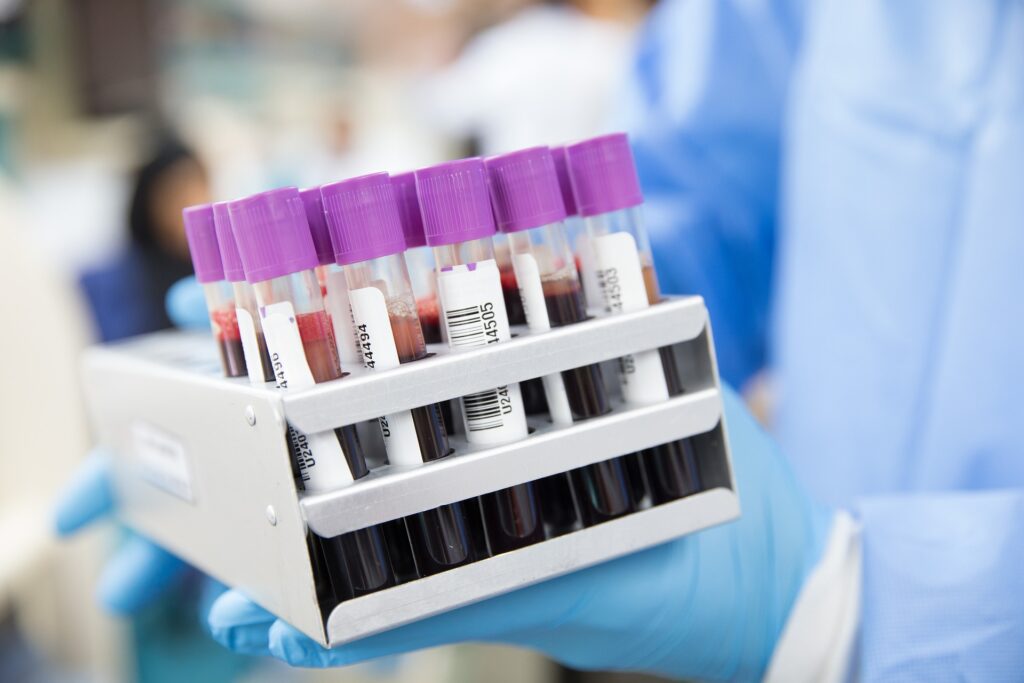In early December, four US Congressmembers introduced the Multi-Cancer Early Detection Screening Coverage Act, which would expand coverage pathways for blood-based multicancer tests under Medicare. In a press release, Reps. Raul Ruiz, M.D. (CA-36), Terri Sewell (AL-07), Jodey Arrington (TX-19), and Richard Hudson (NC-08) emphasized the importance of these early detection technologies as an opportunity to improve cancer treatment and outcomes in vulnerable communities.
On Dec. 10, just a few days after this legislation was proposed, the Health, Medicine and Society Program of the Aspen Institute and the USC Schaeffer Center for Health Policy & Economics hosted a webinar to discuss the opportunities and policy challenges of this innovative technology.
“We need to shift the paradigm and look at it as a public health crisis where a dramatic increase of testing and protecting is made possible,” explained Dr. Azra Raza during her keynote address. “We need to switch from screening individual cancers to screening multiple cancers.” Raza is the Chan Soon-Shiong Professor of Medicine and Director of the Myelodysplastic Syndrome Center at Columbia University.
Out of the 1.3 million individuals between the ages of 50-79 who are diagnosed with cancer, only 15% of those cases will be caught early, she explained. Expanding investments and approaches around early detection technologies could improve patient experience, decrease costs and save lives.
“It doesn’t help to do scan after scan,” Howard A. Burris argued. “A technology better than our current imaging will definitely be an advantage.” Burris is President and Chief Medical Officer at Sarah Cannon and Board Chair at American Society of Clinical Oncology. He moderated a panel discussion on the clinical aspects of this new technology.
There are many patients in rural settings, often of lower socioeconomic statuses, with advanced-stage cancer could have benefitted from early detection, added Lincoln Nadauld, Vice President and Chief of Precisions Health and Genomics at Intermountain Healthcare, during the panel discussion.
“If we can have blood-based cancer screening tests, that democratizes access to cancer care,” Nadauld said. “If we can catch cancer early, we can save lives earlier.”
Otis Brawley, Bloomberg Distinguished Professor of Oncology and Epidemiology at John Hopkins University, noted that better investments in blood-based tests can improve accuracy and limit false positives and false negatives, which makes it difficult to identify patients that will require treatment. That is an important step to ensure care is high value and not done unnecessarily.
Following the clinical panel, Darius Lakdawalla, Director of Research at the Schaeffer Center, focused on the economic value of expanded access to blood-based multicancer tests. Lakdawalla highlighted that cancer deaths in the U.S. have declined at a larger rate compared with E.U. countries. He said preventive measures have contributed to these decreases, but breast cancer, colon and rectal cancer, and cervix cancer have all dropped the most thanks to better screening methods.
“We’re doing quite well at picking up these cancers early,” Lakdawalla said. “It is difficult to escape the conclusion that screening matters.”
Lakdawalla said that while advances in screening technologies offer promise, not all populations are receiving these benefits equally. Lakdawalla shared that between 2004-2014, there was a substantial difference of breast cancer being caught much earlier for white women compared to Black women. These disparities did not appear in cancers where early detection was unavailable, showing that reimbursement and delivery policy needs to make early detection technologies more equitable.
Following his presentation, Lakdawalla moderated a policy panel with Stacey Fedewa, Senior Principal Scientist, Surveillance Research at American Cancer Society, Lee Newcomer, Principal at Lee N. Newcomer Consulting, and Josh Ofman, Chief Medical Officer and External Affairs at Grail.
The panel discussed current challenges with early detection and how policy can keep these technologies cost effective while expanding access to vulnerable populations. Fedewa said the current system is hard to navigate, and with 48 million people not having paid sick leave in the U.S., many do not follow the multi-step process of getting screened. A blood-based multicancer test would reduce steps and lead to more people in lower socioeconomic situations getting screened according to Fedewa.
Newcomer shared that it is important to make sure those who need early detection most get access versus broadly expanding testing, which may cause costs to spike. He said technology advances can help with identifying which groups are most at-risk to ensure early detection is cost-effective.
Ofman added an emphasis on policy approaches needing to reflect the urgency of the cancer crisis, which is on track to surpass heart disease as the deadliest U.S. disease.
“The only hope we really have to make a dent in the cancer mortality curve is to dramatically improve the cancer detection rate in the population,” Ofman said.
Schaeffer Center experts are informing the conversation with their analysis on its impact on health, the economy, public policy, and human behavior. Learn more about this work here.
